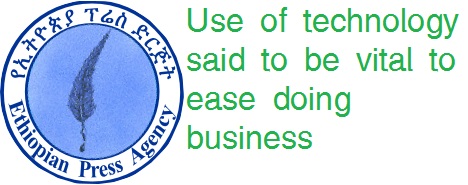
ADDIS ABABA – Members of the private sector said government service delivery needs to be supported by technology to ensure ease of doing business in the country. At a workshop held yesterday to discuss ease of doing business eight ministries or agencies presented their respective reform highlights and collected feedback from the private sector. Participants of the discussion indicated that services related to starting business, getting credit, trading across border paying tax, dealing with construction permit, registering property, enforcing contract and getting electricity should be assisted by technology in order to ease doing business in the country.
The national initiative to improve investment climate and ease of doing business was launched by the FDRE Prime Minister Dr. Abiy Ahmed back in December 2018 to be an integral part of Ethiopia’s action plan for jobs and competitiveness. Eight new laws and 40 procedural and administrative reforms were enacted over the past few months, with the aim to reduce, time cost and procedural hurdles businesses face in their life cycle from start up to operation and exit, it was indicated. Abebe Abebayehu, Commissioner of Ethiopian Investment Commission said that, among the vital events highlighted during the event were elimination of enormous requirements of newspapers publications of trade name and lease agreement for business registration, licensing and service delivery at the ministry of trade and industry.
Abebe stated that, the government gives due attention for trade investment since the country’s lowest performance is in ease of doing business and the private sectors need to be main driver of the economy and leading source for more and better jobs. The initiative targets to address legal, regulatory and administrative barriers which hamper business startup, operation, expansion and exit. National Bank of Ethiopia (NBE) Governor Dr. Yinager Dessie said that, regarding getting credit a new directive that, mandates inclusion of microfinance institutions in to the credit information system. National Bank of Ethiopia’s credit registry database expanded from less than 0.4 percent to over 6 percent through inclusion of microfinance institutions’ borrowers.
He pointed out that, a new proclamation on movable properties security rights are at final stage of approval. Once approved it enables the use of movable assets as secured collateral. Businesses in Ethiopia have been long complaining about facing multiple layers, often redundant, largely unnecessary and very cumbersome business procedures and requirements. Also commercial rules of the country are often cited as outdated and far from catering the needs of modern business practices. These challenges become even more pronounced and punitive for small and medium sized local business that have little to no resilience to absorb the high transaction cost of doing business in the country.
The Ethiopian Herald May 11/2019
BY HAILE DEMEKE





